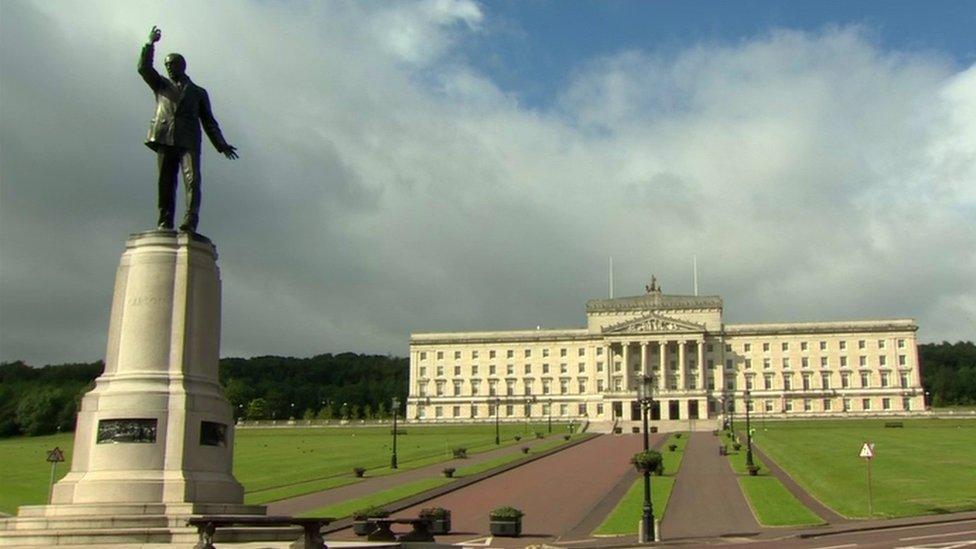Sinn Féin leader accuses DUP of lacking urgency in NI talks
- Published
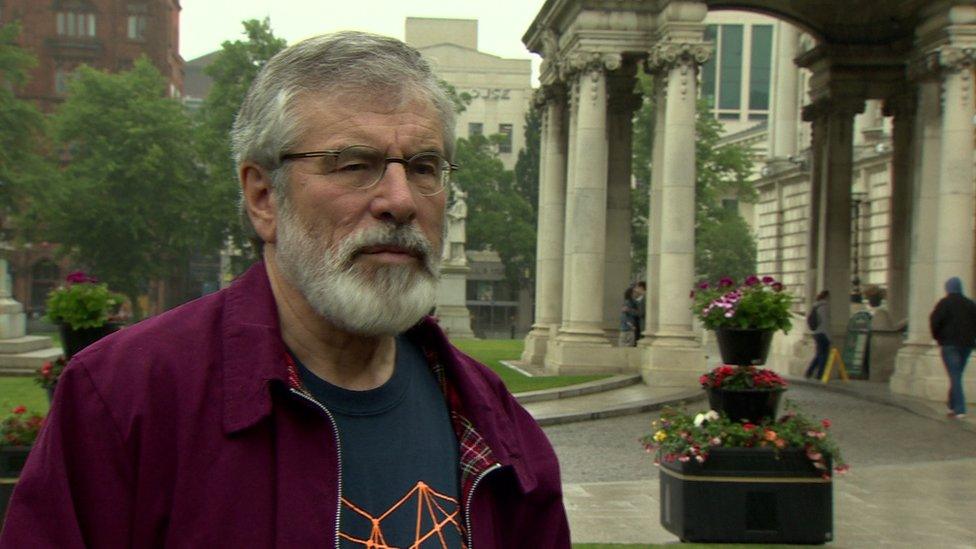
Gerry Adams said an agreement was unlikely by Monday
Sinn Féin leader Gerry Adams has accused the DUP of lacking a sense of urgency in talks aimed at restoring power-sharing in Northern Ireland.
Negotiations drew to a close on Saturday afternoon without agreement and are set to resume on Monday.
But Mr Adams said a deal was unlikely to happen by Monday when the Northern Ireland secretary is due to update MPs on his next course of action.
Earlier, the DUP accused Sinn Féin of having a "shopping list" of demands.
The mood music from the negotiations has not been good over the past 24 hours, with each side blaming each other for refusing to compromise on a number of contentious issues.
Matrimonial matters meant the leaders of both Sinn Féin and the DUP temporarily paused their participation in the talks on Saturday
Negotiations finished on Saturday when Mr Adams and other Sinn Féin negotiators left to attend a rally protesting against Northern Ireland's ban on same-sex marriage.
They had to get to the Belfast city centre demonstration by 15:00 BST.
It is understood that the DUP leader Arlene Foster attended a wedding on Saturday morning, but returned to the negotiations at Stormont Castle after the ceremony.
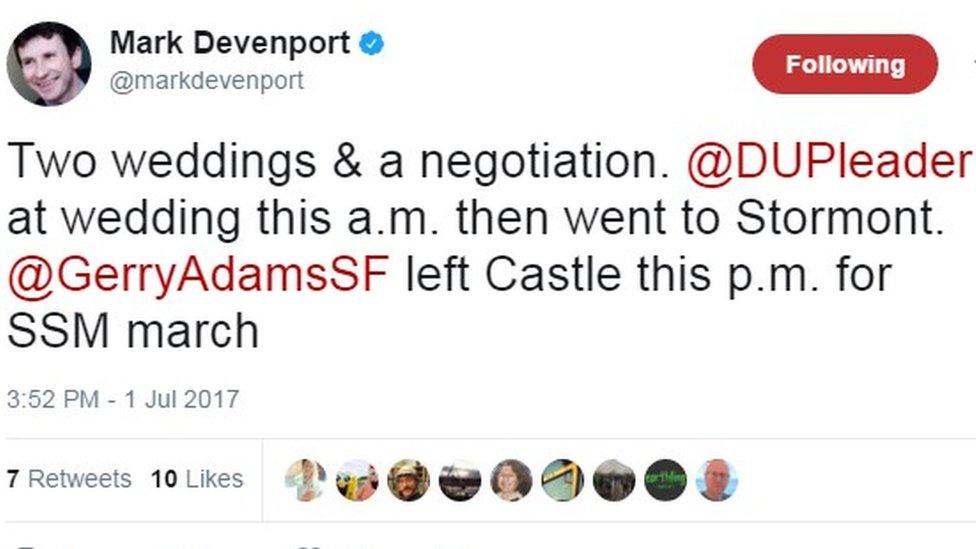
Matrimonial matters meant the leaders of Sinn Féin and the DUP temporarily paused their participation in the talks on Saturday
Mrs Foster and Sinn Féin's northern leader, Michelle O'Neill, spoke separately to Prime Minister Theresa May on Friday night.
Mrs May urged them to reach an agreement and said the government would do everything it could to help bring the talks to a successful conclusion.
But speaking on Saturday, Mr Adams said: "The DUP are showing no urgency about dealing with the equality and rights issues, which caused the collapse of the political institutions.
"There is little prospect that they will do this before Monday.
"There is no agreement on Acht na Gaeilge [Irish language act], the Bill of Rights, marriage equality, respect, anti-sectarian measures or legacy issues. Equality, rights and respect are the only basis for sustainable institutions."
The Sinn Féin leader said this could only be achieved with "a step change in the DUP position".
"A starting point for all the parties and especially the DUP has to be that there can be no return to the status quo. The institutions have to deliver for all citizens," he said.
On Friday night, the DUP's Christopher Stalford said Sinn Féin had presented a "shopping list" of demands and was refusing to go back into government until they had received every item on their list.
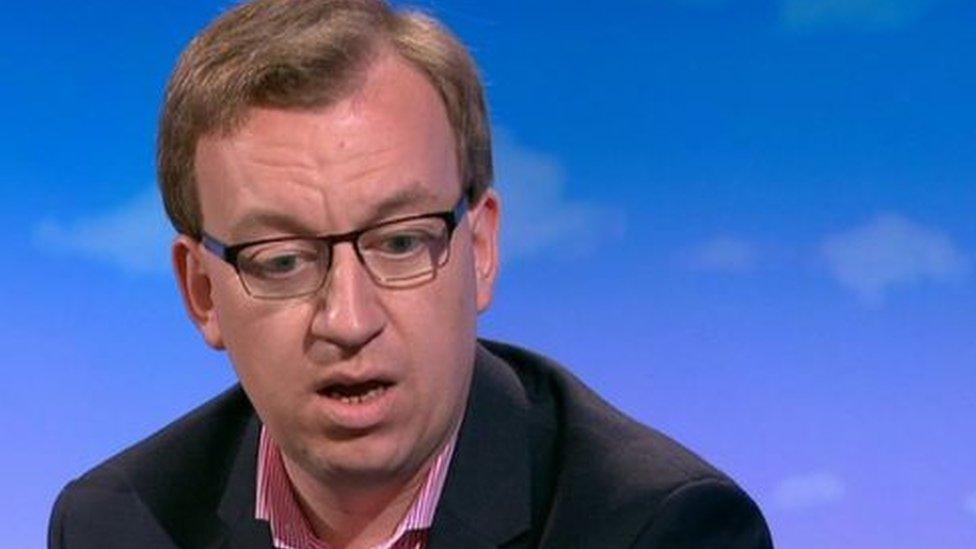
Christopher Stalford accused Sinn Féin of putting together a "shopping list" of demands
He also said that politicians needed to stop "using culture as a stick to poke each other with".
Secretary of State James Brokenshire has the option of extending the talks, calling another assembly election or reintroducing direct rule.
On Saturday, he said: "I still believe power-sharing can happen, but it has not happened yet."
Mr Brokenshire said there were no deadlines but he would be making a statement to Parliament on Monday afternoon to update the House of Commons on what the next steps in the talks might look like.
On the BBC's Any Questions on Friday, he said that the absence of devolved government in Northern Ireland "cannot continue for much longer".
Mr Brokenshire said the Northern Ireland Civil Service "has effectively been running the show" and decisions on budgets need to be taken by politicians.
The head of the civil service in Northern Ireland, Sir Malcolm McKibbin formally retired on Friday.
But the parties have asked him to continue chairing the negotiations.
Sinn Féin's demand for an Irish language act is a major stumbling block, with the DUP refusing to agree to it as part of any deal.
- Published1 July 2017
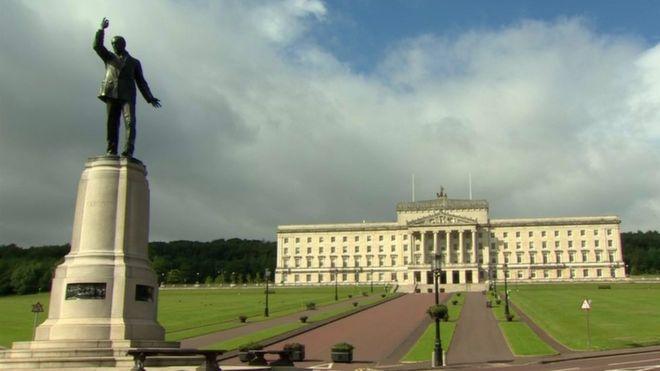
- Published30 June 2017
